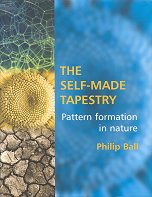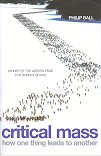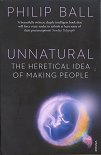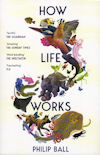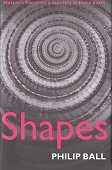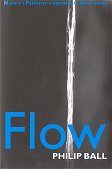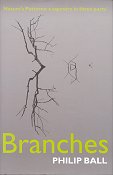This is an excellent book on complexity and patterns in the natural world. Many books on complexity focus on its appearance in biology. Here, whilst biology is covered, the primary focus is on physical and chemical processes, which serves only to deepen the fascination with the topic: how such seeming simple systems can exhibit such deep and subtle complex properties. Each chapter covers a single theme (such as "bubbles") across an incredibly broad spectrum of examples. Themes covered also include waves, fluids, grains, and more. The main value is the linkages established between different themes and processes discussed throughout the book.
An excellent choice for someone who wants to go the next step beyond the popularisations. The treatment is not as technical as a full textbook, but certainly more detailed than a popular account would be, without losing any readability. Recommended.
